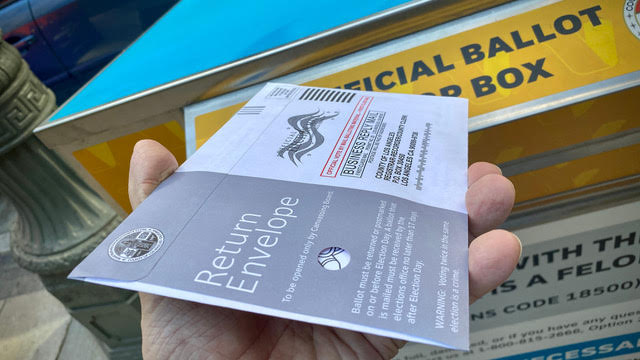
Antonio Ray Harvey | California Black Media
California Secretary of State Shirley Weber and Attorney General Rob Bonta said they are laser-focused on ensuring that the state’s gubernatorial recall election on Sept. 14 is safe, fair, and accessible to every voter that visits a polling place or votes by mail.
As vote-by-mail ballots make their way to every active registered voter across the state, Weber and Bonta are asking Californians to review the “California Voter Bill of Rights,” learn more about the state’s voting protections and make a plan to cast their ballot.
Weber and Bonta were speaking during a virtual news conference held last week and livestreamed on the California Department of Justice website to explain voters’ rights.
“It’s about helping voters make their voices heard,” Bonta said.
“California voters should know their rights. It’s an essential part of helping our election safe and secure. If (voters) believe that they have been denied of any of these rights or aware of any election fraud or misconduct, please let us (the Department of Justice) know.”
County elections officials across the state are required to mail each registered voter a vote-by-mail ballot. Voters can return their ballots by mail or through other options made available by their county elections officials or go in-person to the polls.
Despite the devastating impacts of the global pandemic, nearly 17.8 million Californians were able to safely and securely vote during the 2020 General Election. That was the largest voter turnout in almost 70 years.
Registration numbers continue to rise to over 22 million.
“Democracy clearly matters to the people of California,” Weber said. “To ensure that the outcome of the upcoming recall election reflects the will of the people, Californians have my commitment and that of the Attorney General to protect the right of every eligible voter — regardless of party — to cast their ballot.”
Bonta said that every vote-by-mail ballot comes with a postage-paid envelope and, as long as it is postmarked by election day, Sept. 14, it is valid.
On election day, the California Department of Justice (DOJ) will be on call to provide additional assistance to the Secretary of State’s Office. The departments will work in tandem to enforce California’s election laws where needed through a team of attorneys and administrative staff across the state, Bonta said.
During the news conference, Weber addressed Californians in county jails serving a misdemeanor sentence. She said a misdemeanor does not affect your right to vote if you are awaiting trial, on parole, on probation, on mandatory supervision, on post-release community supervision, on federal supervised release, and a person with a juvenile wardship adjudication is eligible to vote.
But a person serving a state prison sentence in a county jail or state correctional facility is not allowed to register to vote or vote.
Once a person has finished serving their prison term, the right to vote is restored. However, the emancipated must register online or by filling out a paper voter registration card.
“We don’t have these laws that keep people on parole or probation or a felon from voting,” Weber said. “We’re saying that everyone has a right to vote other than those who are currently incarcerated in federal and state prisons.”
The California Voter Bill of Rights is available on the Secretary of State’s website in nearly 30 different languages, including English, Spanish, Chinese, Hindi, Japanese, Khmer, Korean, Tagalog, Thai, and Vietnamese.
To download the California Voter Bill of Rights in your language, visit: https://www.sos.ca.gov/elections/voter-bill-rights.



